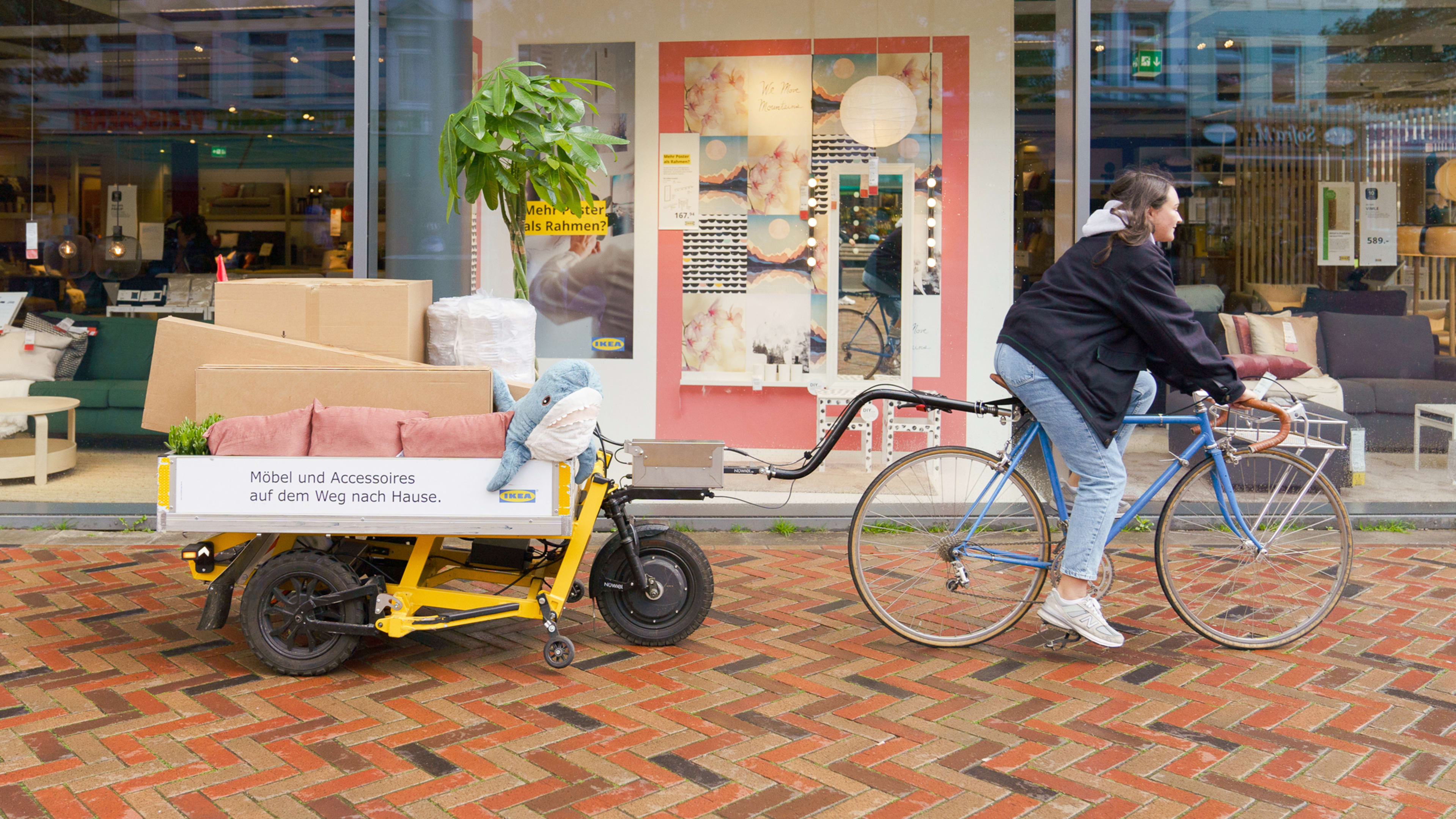If you go to Ikea in Hamburg, Germany, and buy a bookcase or a rug, the store will loan you an electric cargo trailer so you can easily take your purchase home without using a car. (The service, free for three hours, is also available at Ikea stores in five other German cities.) The trailer, designed by a company called Nüwiel, attaches to any bike or can be guided by hand down the sidewalk, carrying all of the weight by itself.
“What we wanted to do is enable anyone in the world to be able to move goods in the city in a really practical way,” says Nüwiel cofounder and managing director Natalia Tomiyama. “And not reinventing the wheel, but connecting our solution to the most sustainable and practical mobility solution, which is a bicycle.”
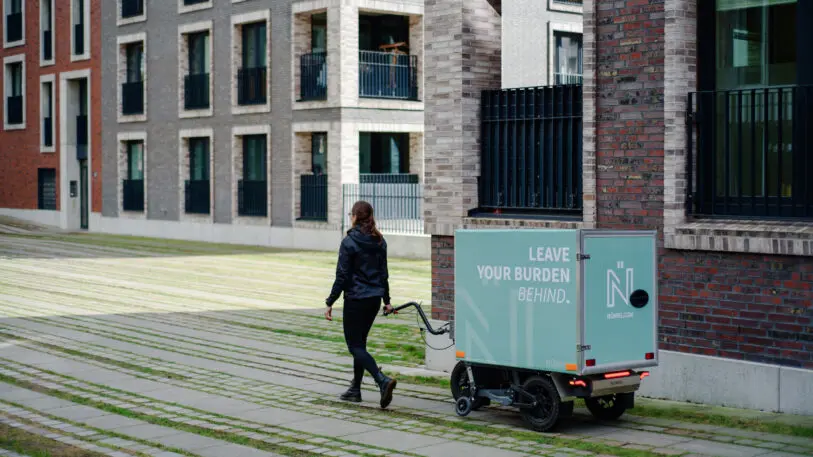
Tomiyama and cofounders Sandro Rabbiosi and Fahad Khan started working on the design as students at a local university, then launched Nüwiel in 2016. None of them owned cars, and they saw the challenges of running errands firsthand, even in a walkable city like Hamburg. Paying for delivery was expensive and hard to coordinate; ordering online was also pricey. They wanted to make it easier for people to buy something locally.
The e-trailer is designed to be as simple as possible to use, with sensors that automatically match its movements with the person in front, whether they’re on a bike or on foot. “There is no push and pull,” Tomiyama says. “The trailer is synchronizing and mimicking the movement in front every millisecond.” It’s also designed to minimize any vibration on bumpy roads and fully carry the load. “You can move 200 kilos [roughly 440 pounds] and you just do not feel any weight behind you,” she says. They can carry more than a lightweight cargo bike, but they’re easy for anyone to handle, unlike typical bigger cargo bikes.
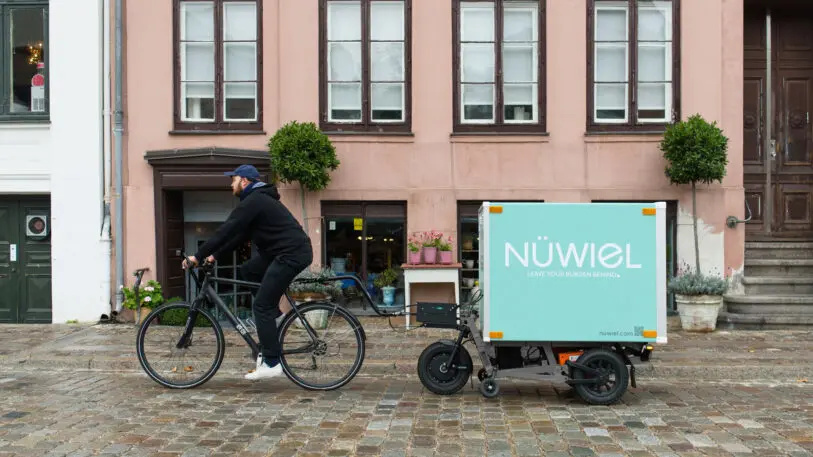
The company also designed a version with a large cargo box that can be used by companies like UPS to deliver packages. The trailers can attach to cargo bikes that already have a box in the front to help add more capacity. In some European cities, bike delivery is already common for mail, but as postal services see a shift from fewer letters to more packages, the electric trailer can help deal with a heavier load. In other cases, the trailers are helping replace some truck trips.
One customer, Belgian Post, “still [has] the fleet of trucks, but they can shift some of the parcel or mail deliveries from trucks or vans to the bicycle and the trailers because it’s just faster in the city center,” says Tomiyama. Belgian Post uses electric vans to deliver packages and letters to “microhubs” in dense neighborhoods, where bike delivery workers come throughout the day to pick up more deliveries for their routes. At a post office in the city of Mechelen, Belgium, where the agency made a shift to a small fleet of bikes with trailers—along with other electric cargo bikes, electric vans and cars, and lockers where customers can walk to pick up packages—it estimates that it has cut emissions by 97%.
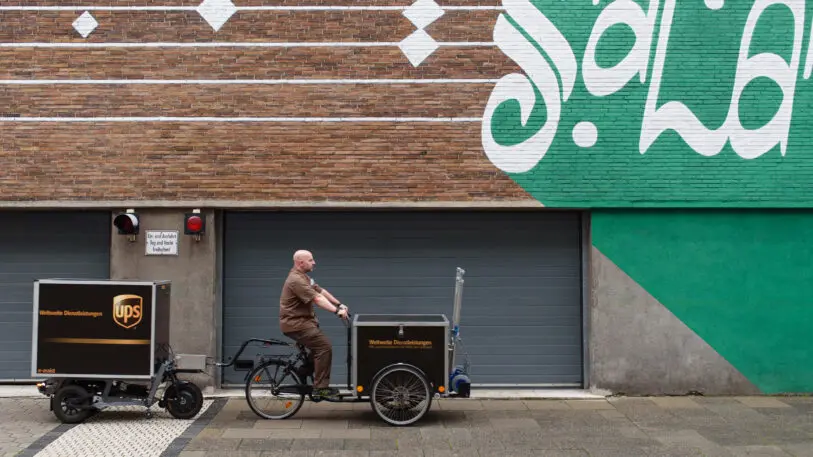
Electric cargo bikes are now fairly common in Europe. The shipping company DHL, for example, has thousands of e-bikes in use in Germany alone. In London, Amazon is using electric cargo bikes that look like miniature trucks, and it has launched micromobility hubs in 20 European cities. In Oslo, Norway, a shipping company called DB Schenker uses electric cargo bikes as one part of the city’s overall move to cut emissions. In Paris, where new bike lanes have led to a steep increase in cycling, electric cargo bikes are also being adopted by plumbers and dry cleaners.
Tomiyama contends that Nüwiel’s design can complement other e-bikes that are already on the road, either by adding cargo space or by providing an option that’s more flexible, since the trailer can be unhooked and walked around on foot.
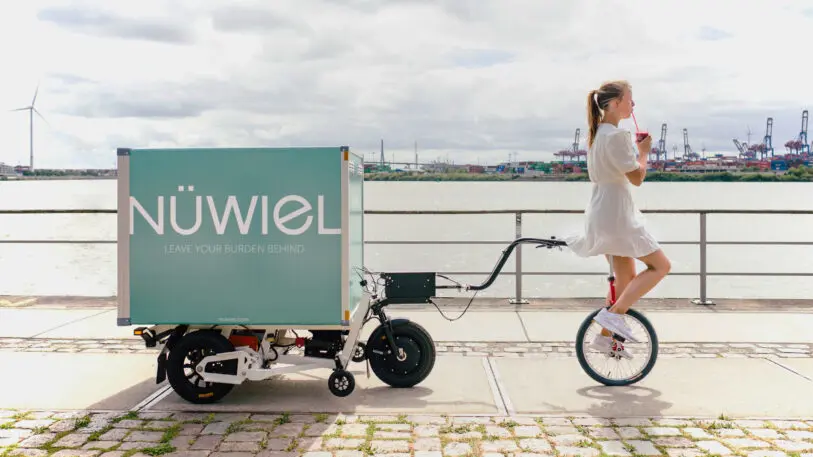
The shift is happening more slowly in American cities, although UPS, Amazon, and others have tested electric cargo bikes and a small number are in use. (Amazon, for example, uses cargo bikes to make Whole Foods deliveries in New York City.) Still, Nüwiel’s founders are hoping to expand in North America, and recently got funding from Elemental Excelerator, a U.S.-based climate tech investment company that says it sees potential for the technology here, both for package delivery and as a service to deliver goods from stores, like at the Ikea locations in Germany.
It’s easy to make the case for this type of solution: By the end of the decade, as online shopping continues to grow, the number of delivery vehicles on city streets may grow by 36%, adding to traffic jams as even more trucks double-park and block lanes.
In a crowded city, cargo bikes can actually make deliveries faster. And they can cut local air pollution and help cities reach climate goals. In one recent study, researchers calculated that cargo bikes could potentially help take 1,000 box trucks off roads every day in the polluted Bay Area neighborhood of West Oakland.
Recognize your brand’s excellence by applying to this year’s Brands That Matter Awards before the early-rate deadline, May 3.
